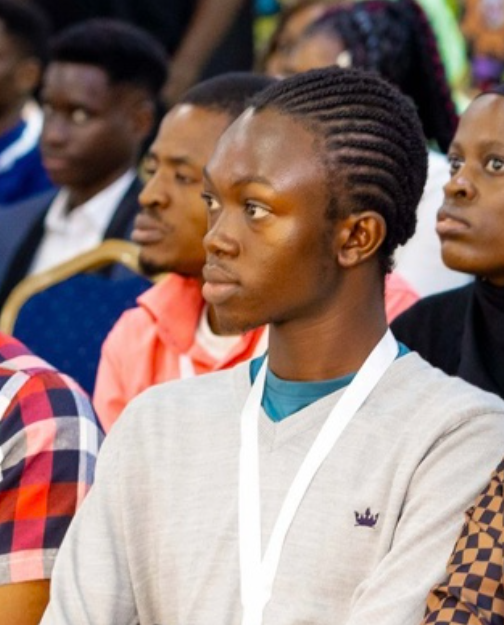
Adegoke Fuad ALIPHATIC
My name is Adegoke Fuad ALIPHATIC, and I am a Freshman at the University of Lagos studying Systems Engineering. I am a Software Engineer, Product Manager, Technical Writer, and Public Speaker. I am the creator of the ANTAPEX Community. It is a network of diverse student tech enthusiasts and youngsters from various institutions and colleges throughout Nigeria. I developed the community to help reduce digital illiteracy among Nigerian students and youths.
What motivated you to get involved in open-source community organizing?
My passion for technology and desire to solve digital illiteracy among Nigerian students and youths inspired me to get active in open-source community organizing. I also want to use technology to effect positive change, and I’m committed to equipping young brains with the tools they need to flourish in the digital age.
Can you describe your process for identifying and addressing the needs of the open-source community?
I used a systematic approach to efficiently serve the needs of an open-source community. I begin by performing a needs assessment and speaking with community members to learn about their difficulties and goals. Based on this assessment, I developed specific goals and objectives that align with the community’s mission. I prioritized the identified needs by data analysis and consideration of urgency, impact, and feasibility which help. C created a roadmap with defined actions and deadlines. The community was engaged by involving individuals in decision-making and encouraging active participation. Allotted the required resources and put the roadmap into action, continuously evaluating progress and collecting feedback for iterative improvements.
How do you approach building and nurturing a vibrant open-source community? I concentrated on crucial tactics to establish and foster a vibrant open-source community. To begin, establish a clear objective and foster an inclusive workplace in which varied individuals feel welcome to contribute. Encouraged community members to collaborate and communicate effectively, and gave guidance and support. Events and activities that promote networking and learning opportunities are organized. Contributions were recognized and rewarded to express appreciation. Based on feedback, continuously analyze and enhance the community, and establish transparent governance and decision-making processes.
What strategies do you use to engage and attract new members to the open-source community? I use several tactics to engage and attract new members to the open-source community. This includes communicating clearly about the community’s purpose and benefits, creating a welcoming environment with comprehensive onboarding materials, implementing mentoring programs, organizing community events, utilizing social media for outreach, recognizing and rewarding contributions, collaborating with educational institutions, participating in initiatives such as Hacktoberfest, and utilizing community engagement platforms.
What challenges have you faced as a community organizer, and how did you overcome them? Building initial momentum, maintaining participation, settling issues, managing expansion, adapting to diversity, and balancing time and obligations have all been challenges for me as a community organizer. To address these obstacles, I have prioritized open communication, inclusivity, soliciting input, delegating roles, and modifying techniques as needed. I was able to address these difficulties and develop a strong and resilient community by actively listening, supporting constructive discourse, empowering community members, and prioritizing self-care.
How do you measure the success and impact of your open-source community initiatives? Tracking community growth, contributions, adoption and usage, feedback and testimonials, collaborations and partnerships, community health and diversity, success stories and case studies, and the impact on other projects or communities.
What steps do you take to ensure the sustainability and longevity of the open-source community you organize? Established clear governance and documentation, fostered collaboration and mentorship, created a diverse and inclusive environment, promoted continuous learning and skill development, maintained regular community engagement, provided recognition and celebration, collaborated with other communities, planned for succession, and secured funding and resources
